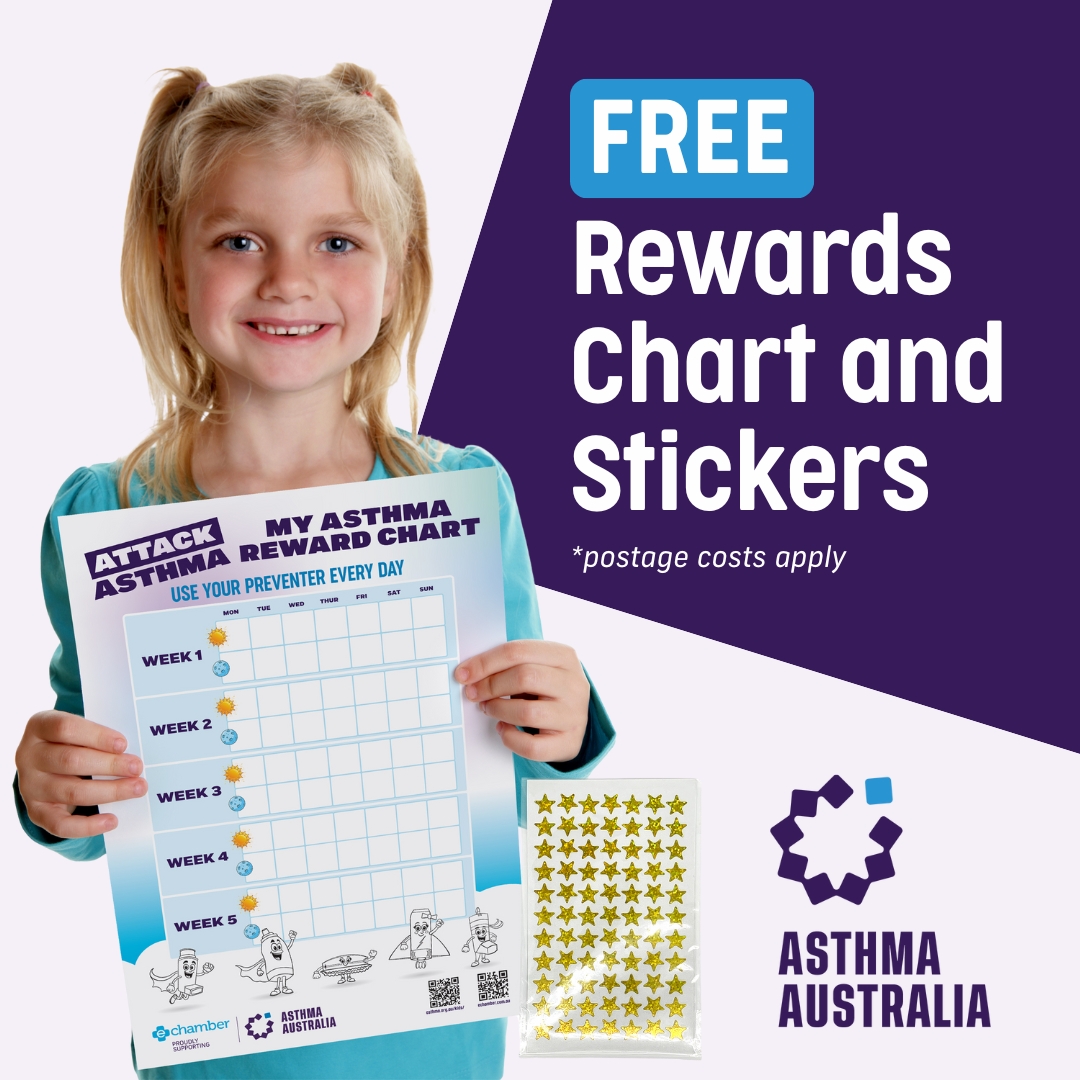Updated 24/08/2022
Addressing Oral Corticosteroid use in asthma care
As part of World Asthma Day 2022, Asthma Australia with AsthmaWA and the Centre for Excellence in Treatable Traits, ran a survey about the use of corticosteroid tablets in asthma care. Thank you to everyone who completed it.
This is the biggest collection of lived experiences around these medicines in Australia.
We are now working to address what the ‘real life’ gaps in asthma care are, as shown to us by people living with asthma. With other leading respiratory organisations we aim to improve how these medicines are prescribed so there’s a balance between their benefits and adverse health impacts. We are calling this our plan for Oral Corticosteroid Stewardship in Australia.
This is a longer-term project which started with this very important survey. We are happy to share the takeaway survey results below or download them here. For any questions, please email [email protected]
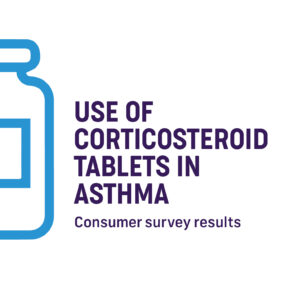 |
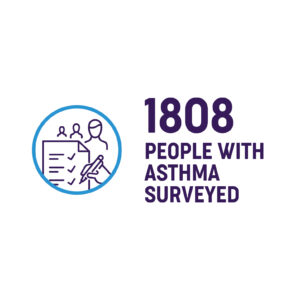 |
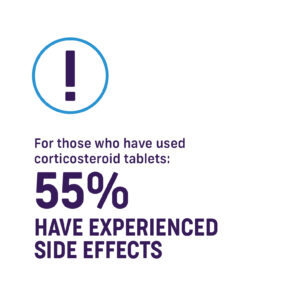 |
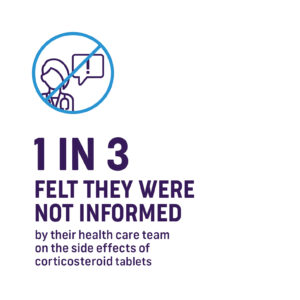 |
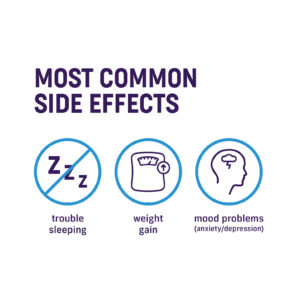 |
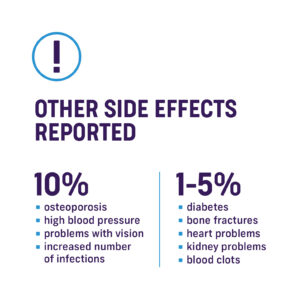 |
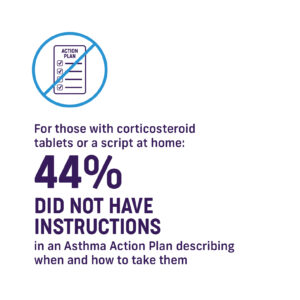 |
 |
World Asthma Day Survey Announced
As part of World Asthma Day 2022, Asthma Australia alongside AsthmaWA and the Centre for Excellence in Treatable Traits, are running a survey about the use of corticosteroid tablets in asthma. This forms part of a longer-term project Asthma Australia is involved in regarding oral corticosteroids stewardship for people with asthma in Australia. We will update you on the survey results in due course.
Here’s some more information about why we’re investigating oral corticosteroids use in Australia.
Or you can read the Thoracic Society of Australia and New Zealand Position Paper: Oral corticosteroids stewardship for asthma in adults and adolescents here.
What are oral corticosteroids?
Oral corticosteroid tablets and liquids include medications such as prednisone, prednisolone and dexamethasone. They are powerful anti-inflammatory medicines that work to dampen the immune system which helps to quickly reduce the swelling, redness and mucus production in the lungs. These medicines come in the form of tablets or liquids and contain a much larger dose of corticosteroids than the inhaled forms found in your preventer inhaler.
What’s the issue?
As inhaled corticosteroids in your preventer reach the airways and lungs directly, only a small dose is required for them to be effective. In contrast, oral corticosteroids used to treat severe symptoms are used at much larger doses, and work ‘systemically’ – after they are swallowed, they enter the bloodstream to travel and be deposited throughout the body.
Because of the systemic distribution, people who use oral corticosteroids may experience a range of side effects, which can include mood swings, bloating, weight gain, growth changes, changes in the skin, the eyes and bone density, increased blood pressure and dizziness. Typically, short term use at recommended doses won’t cause serious side effects, however, long term, repeated use and doses in excess of those recommended may significantly increase the risk of these side effects, and others, which may not be reversible.
These medicines should only be used by people who need it due to the severity of their disease or by those who experience severe breakthrough asthma attacks (or flare-ups). However, we understand that they are used excessively, outside these scenarios, which puts people at risk.
Why are we doing this?
There is evidence to suggest that some people with asthma are being prescribed oral corticosteroid tablets excessively as part of their asthma management. Many of these people may not be aware of the short-term and long-term side effects that can come with these medicines.
We want to change this and support consumers to have informed conversations with their health care provider. We want to see reduced use of these medicines in routine asthma care, reduced flare-ups requiring these medicines and strict and controlled prescribing when these medicines are required. But we need to better understand this issue before we can tackle it. That’s why, this World Asthma Day, we’re asking you to share your experiences with oral corticosteroids and your thoughts on how we can reduce the health risks caused by excessive use. Please help us by completing a short survey, which will take approximately 5 minutes of your time. The survey has been approved by the Monash University Ethics Committee (ID32641).
Please click here to complete the survey for someone your care for.
You can also contact the research team directly with any queries: Prof Anne Holland, [email protected] or 03 99030214.
WOULD YOU LIKE TO STAY IN TOUCH?
I live in Western Australia. View AsthmaWA site here.
Sign up to Asthma Australia’s newsletters here.





 1800 278 462
1800 278 462



